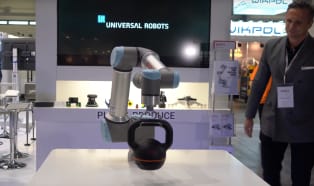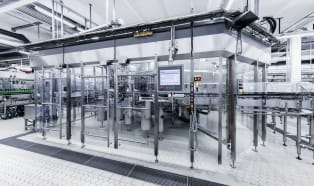
WITTMANN R9 WLAN TeachBox: the new freedom of movement
At the K 2019 in Düsseldorf, WITTMANN presented another innovative option for the WITTMANN R9 robot control system.

At the K 2019 in Düsseldorf, WITTMANN presented another innovative option for the WITTMANN R9 robot control system.

Six cobots by Universal Robots work in the Katowice-based factory of Unilever, one of the world’s largest companies within the Fast-Moving Consumer Goods (FMCG) industry and the owner of around 400 brands, available in over 190 countries

On the occasion of K 2019, Engel announces that it is breaking new ground in the further digitalisation of the injection moulding process in collaboration with Autodesk.

Baumüller will be presenting numerous new products at the SPS 2019

“Circular Economy” is the motto of the K 2019 and the largest common denominator in the cooperation between Wittmann Battenfeld and Zeroplast. The bio-based natural material is not only recyclable, bio-compatible but is also said to fulfill all the wishes and requirements of industrial customers.

Universal Robots launches heavy-duty payload cobot for collaborative automation

Smart systems which save energy and resources: from November 12 to 14, 2019, KHS is exhibiting intelligent beverage filling technologies at the BrauBeviale trade show in Nuremberg, Germany.

Industrial “Made in Germany” inkjet printers from Leibinger at the FachPack.

Arburg will be presenting the digital future of plastics processing at Chinaplas in Guangzhou, China. Innovative technologies for digitalisation, injection moulding, automation and additive manufacturing will be on display at stand A41 in hall 5.1.

This year's Plastpol, to be held from 28 to 31 May 2019 in Kielce, Poland, will focus on the "Road to Digitalisation", turnkey solutions and automation.

At the Plastpol 2019 from 28 to 31 May, Wittmann Battenfeld Polska will present to interested trade visitors ultra-modern machine and process technology together with state-of-the-art robots and auxiliary appliances for the plastics industry at booth No. F11 in hall F.

Baumüller Austria presents intelligent drive and automation solutions at Smart Automation 2019 in Linz, Austria